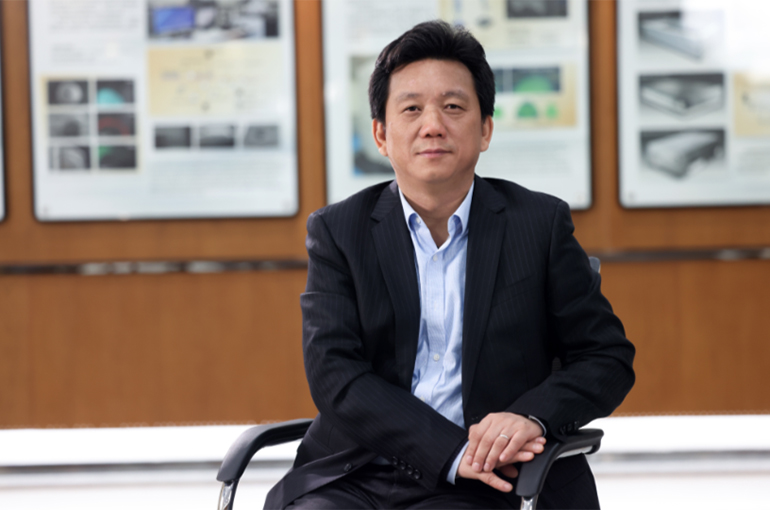 Top Chinese Scientists: Energy-Saving Photochromic Glass Inventor Zhu Weihong
Top Chinese Scientists: Energy-Saving Photochromic Glass Inventor Zhu Weihong(Yicai) Dec. 29 -- When making original breakthroughs or high-performance products, it is necessary to make quantum leaps in basic research to have more chances of overcoming bottlenecks, said Zhu Weihong, a Chinese scientist whose team developed a new type of energy-saving photochromic glass.
The photochromic glass, a photosensitive product, recently broke through the bottleneck of long-term light and thermal-soaking stability and is being used in several areas, Zhu, a member of the Chinese Academy of Sciences, told Yicai. Its color turns darker after absorbing ultraviolet light, and it absorbs ultraviolet and visible light to save energy and avoid light pollution, he added.
Zhu’s work centers around optics, mainly focusing on photosensitive chemical product engineering to serve the fine chemical industry. His research is closely integrated with the industry, although he teaches and researches basic subjects.
Photochromic glass is also Zhu's next research focus, as skyscrapers have a great need for glass and have problems with light pollution and glass energy consumption, he said. This type of glass can help with these issues, he noted, adding that his team is also promoting the use of the glass in the auto industry.
According to the website of the East China University of Science and Technology, where Zhu is vice president, his research results have been applied to fluorescent sensing, high-end anti-counterfeiting technology, and photochromic glasses.
In April, US magazine Science published a paper by Zhu's team titled ‘Minimizing buried interfacial defects for efficient inverted perovskite solar cells,’ which set out solutions for the bottlenecks in organic semiconductor transmission and large-area device fabrication, according to Zhu. UK journal Nature published the team's 'Reconstructed covalent organic frameworks' paper last year, which achieved a breakthrough in material properties, Zhu pointed out.
The demand for industrial application driven by the market’s potential has occasioned higher requirements for researchers, Zhu said. Scientific researchers should not publish papers just to stay in the laboratory, he noted.
Scientists engaged in basic research should deepen their contact with companies to understand their needs and take them into account from the start, so that they can make breakthroughs in product application more easily, Zhu pointed out.
East China University of Science and Technology has established some platforms to turn research results into action, Zhu noted. It recently set up the Shanghai Electronic Chemicals Innovation Research Institute, hoping to put the university's research results on the platform and ultimately bring them to enterprises.
Editor: Martin Kadiev